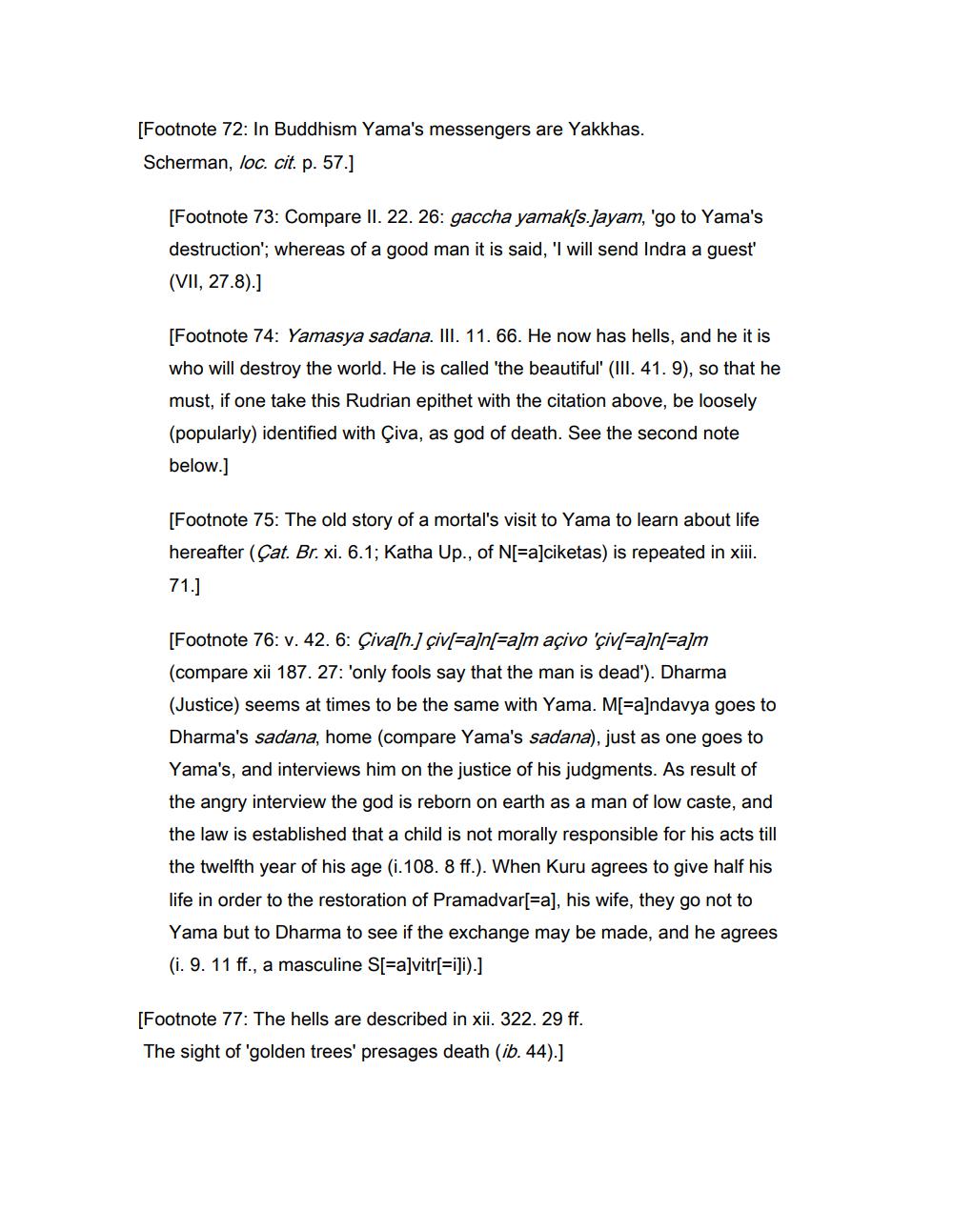________________
[Footnote 72: In Buddhism Yama's messengers are Yakkhas. Scherman, loc. cit. p. 57.]
[Footnote 73: Compare II. 22. 26: gaccha yamak[s.Jayam, 'go to Yama's destruction'; whereas of a good man it is said, 'I will send Indra a guest' (VII, 27.8).]
[Footnote 74: Yamasya sadana. III. 11. 66. He now has hells, and he it is who will destroy the world. He is called 'the beautiful' (III. 41.9), so that he must, if one take this Rudrian epithet with the citation above, be loosely (popularly) identified with Çiva, as god of death. See the second note below.]
[Footnote 75: The old story of a mortal's visit to Yama to learn about life hereafter (Çat. Br. xi. 6.1; Katha Up., of N[=a]ciketas) is repeated in xiii.
71.]
[Footnote 76: v. 42. 6: Çiva[h.) çiv[ra]n[=a]m açivo 'çiv[ra]n[=a]m (compare xii 187.27: 'only fools say that the man is dead'). Dharma (Justice) seems at times to be the same with Yama. M[=a]ndavya goes to Dharma's sadana, home (compare Yama's sadana), just as one goes to Yama's, and interviews him on the justice of his judgments. As result of the angry interview the god is reborn on earth as a man of low caste, and the law is established that a child is not morally responsible for his acts till the twelfth year of his age (i. 108. 8 ff.). When Kuru agrees to give half his life in order to the restoration of Pramadvar[=a), his wife, they go not to Yama but to Dharma to see if the exchange may be made, and he agrees (i. 9. 11 ff., a masculine S[=a]vitr[=iji).]
[Footnote 77: The hells are described in xii. 322. 29 ff. The sight of 'golden trees' presages death (ib. 44).]




